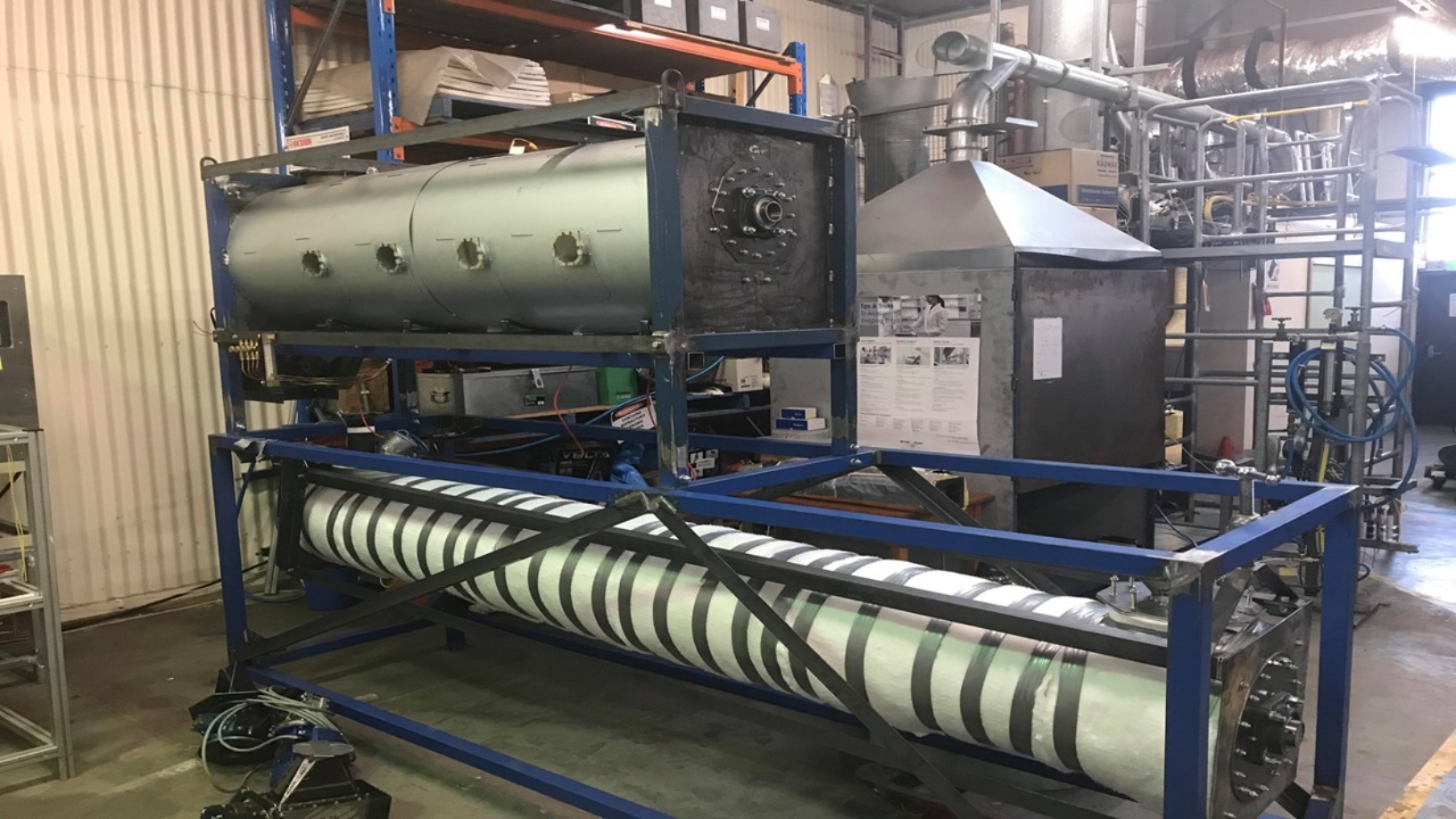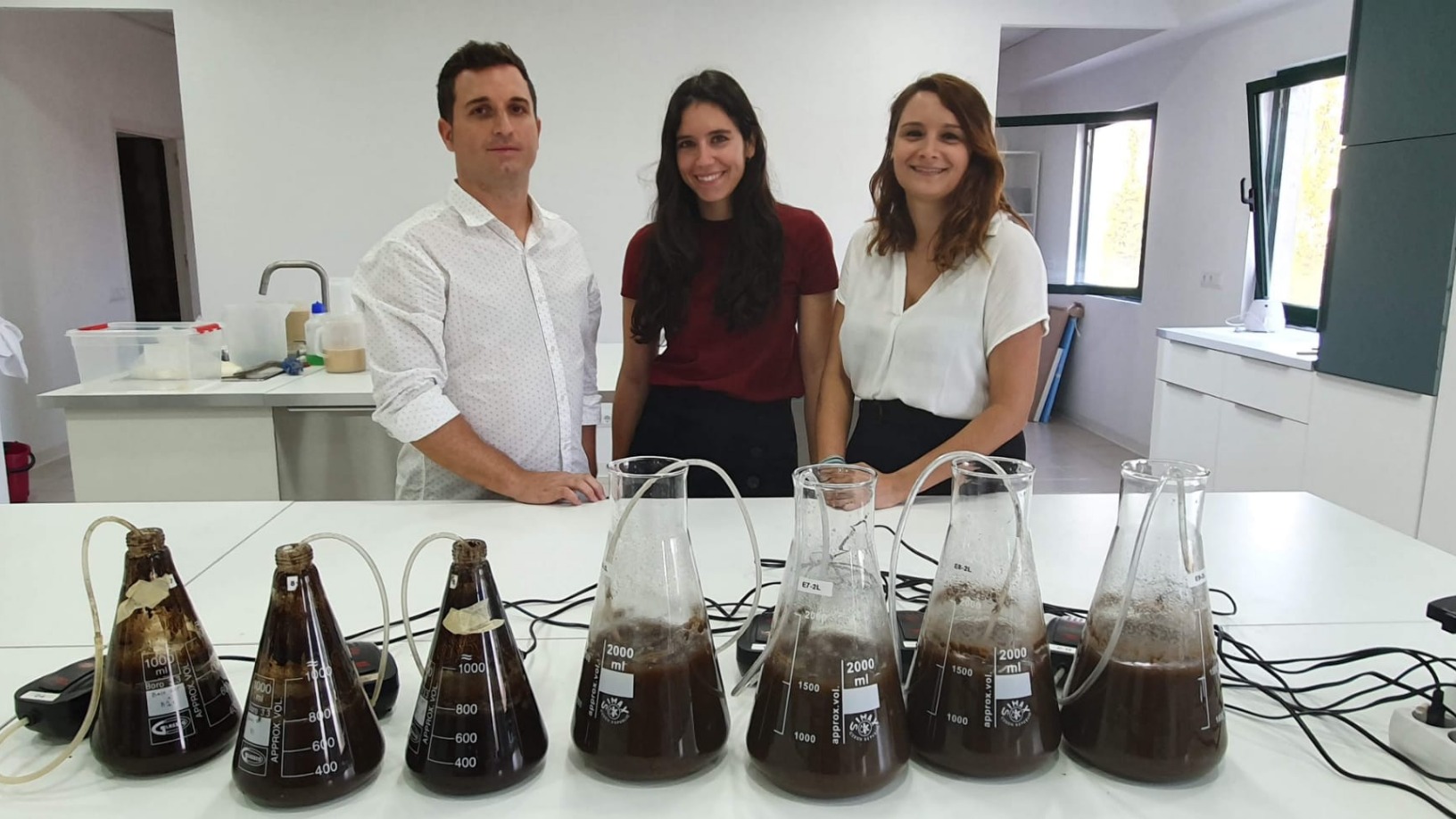Agricultural waste can be transformed into useful products like compost and fuel briquettes, but more often than not it is burned or discarded. Adelaide-based Bygen wants to helps agriculture and forestry businesses convert organic waste into activated carbon while using less heat and energy than conventional methods of making activated carbon from coal or hardwood.
Activated carbon, also called activated charcoal, has a high capacity to adsorb various chemicals, making it suitable for many applications, ranging from water filtration to metal recovery and soil remediation. CTO and co-founder Ben Morton told CompassList that Bygen wants to reduce death and disease caused by burning agricultural waste while offering an economic inducement for agribusinesses to recover valuable resources from waste.
“Because there’s no incentive to process the waste [which is often burnt], it leads to not only economic problems, but also health issues like premature deaths and lung silicosis,” Morton said.
Morton established Bygen with fellow University of Adelaide researcher Lewis Dunnigan. The two worked under the same academic supervisor and combined their respective chemical and industrial engineering expertise to develop Bygen’s technology as a University of Adelaide spin-off.
Since it was established in 2017, Bygen has constructed a pilot-scale manufacturing plant to demonstrate its technology, supply activated carbon and provide consulting services to users. The company has attracted funding from various sources, including a A$217,000 grant in 2018 from the South Australian Early Commercialisation Fund and a A$1.2m seed round in November 2020 led by Artesian.
Cutting energy use, emissions
The conventional way of making activated carbon is by using either coal, hardwood or coconut husks. However, extracting coal and hardwood is environmentally destructive, Morton said, as it often involves deforestation and mining. Also, while coconut husks are a more sustainable feedstock, coconut husks and hardwood must be converted into charcoal to obtain activated carbon.
Converting coconut husks and hardwood into coal is often harmful and potentially exploitative, Morton said, referring to the fact that many companies do this in developing countries because of the cheap labor. “The workers are also exposed to conditions that are completely unacceptable in developed countries, often without adequate safety gear.”
The charcoal is then shipped to factories that convert them into activated carbon. Typically, this occurs at high temperatures of up to 900 degrees Celsius and requires large amounts of pure gases, including CO2. A lot of energy is needed to maintain these high temperatures and pump the gases into the reactors. This translates into higher emissions.
Bygen’s process aims to cut the energy required to make activated carbon and reduce emissions generated. Morton said this is achieved by optimizing existing production processes. Bygen combines the pyrolysis process — where organic matter is heated to make charcoal — and the carbon activation process in one manufacturing plant.
The heat generated during pyrolysis is partially recovered and channeled into the carbon activation process or other purposes. “For example, a timber company can use the heat from pyrolysis to dry their wood or to heat water and produce electricity,” Morton said.
Furthermore, Bygen’s carbon activation process requires less heat to run, Morton said, because it uses a proprietary blend of activation compounds, but he declined to provide details. However, he said the way the company makes activated carbon is beneficial to the environment because it can be a means of carbon sequestration.
Customized activated carbon
While Bygen has taken up consulting projects and worked with some clients to process waste, it has not fully commercialized its technology. It plans to eventually license its technology to businesses in the agriculture and forestry sectors. This would offer such companies the dual benefit of eco-friendly waste management and additional revenue from activated carbon sales.
It may also provide services to companies that are “struggling to get rid of waste,” Morton said. “Companies either have to dump the waste [such as olive pits and nutshells], or turn them into compost, and they have to pay someone to do that. With our technology, they're essentially getting paid to process that waste biomass into activated carbon.”
Bygen also improves the value of the activated carbon produced by modifying the production process to create activated carbon with different adsorption properties for varying needs. For example, some users might need activated carbon with higher adsorption capacity and would be willing to pay a premium for it. Others might need activated carbon that can adsorb specific chemicals better.
Producing tailored forms of activated carbon would meet a gap in the market. “Currently, customers are buying activated carbon from many different manufacturers and mixing them to get the right properties, and they are doing this blindly,” Morton said.
Although Bygen plans to earn revenue mainly through licensing, Morton said the company might open its own manufacturing plant in the future. “We’re 90% sure that licensing is how things are going to end up, but as a lean startup, we’ve always had that flexibility.”
China, US markets
According to Morton, Bygen’s technology is easily applied in many parts of the world because of its ability to use various types of agricultural waste and organic matter, and even some plastics as feedstock.
“We’ve made activated carbon out of plastics, wheat, almond and tree bark, including eucalyptus. We have tested feedstock sent from the US, Canada, China and Europe as well, so we’ve got most of the central landmasses covered,” Morton said
Most of the world’s activated carbon goes to the US and China, so Bygen may target companies in these countries. Morton estimates that globally, the market for activated carbon is worth $8bn and will expand at a CAGR of 10% between now and 2027.
With the funding from Artesian and revenues from its consulting business, Morton said Bygen “has been able to secure a runway to continue operating for the next two years.”
The company is considering plans to raise further funding within the next 12 to 18 months to expand its team, refine its technology, and potentially construct its own commercial-scale manufacturing plant. “We want to squeeze every bit of optimization and energy savings we can get from our process,” Morton said. “That’s why I’m looking forward to growing the team and finding out what kind of people we want to work with, to make this happen.”












